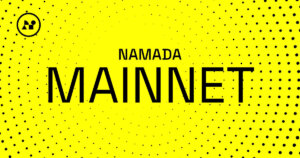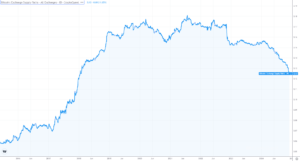 Justin Sun defends Tron following allegations of facilitating terror financing
Justin Sun defends Tron following allegations of facilitating terror financing Justin Sun defends Tron following allegations of facilitating terror financing
Sun said the blockchain network is committed to fighting illegal use by terror groups but maintained that decentralization was its primary concern.

Cover art/illustration via CryptoSlate. Image includes combined content which may include AI-generated content.
Justin Sun, founder of the Tron (TRX) blockchain, has defended the network in a Nov. 27 X (formerly Twitter) post following a Reuters report that it is increasingly being used to finance terrorist activities and organizations.
Sun stressed that Tron’s decentralized structure, similar to Bitcoin (BTC) and Ethereum (ETH), forms the core of its philosophy. He wrote:
“While we are committed to combating terrorist financing by integrating various analysis projects and partners, our top priority remains maintaining decentralization, ensuring the safety of everyone’s assets, and providing instant, affordable, and reliable transactions, as has always been the case.”
Sun did not deny the allegations in the post.
Tron is a blockchain network renowned for its cheap transaction fee and user-friendly protocol, facilitating widespread adoption. The platform boasts over 198 million addresses, particularly prevalent in the Middle East and Central Asia.
Terror organizations increasingly use Tron: Reuters
On Nov. 27, Reuters reported that Tron had gained traction among terror groups due to its swift and cost-effective transactions, leading to a notable increase in seizures from Tron wallets since 2021.
Israel’s National Bureau for Counter-Terror Financing (NBCTF) seized 143 Tron wallets associated with terror groups between July 2021 and October 2023. 87 wallets were confiscated this year, making up two-thirds of the seizures.
Notably, 39 wallets linked to Lebanon’s Hezbollah were seized in June, and 26 belonging to Palestine’s Islamic Jihad in July. Additionally, around 56 wallets tied to Hamas have been confiscated.
This further corroborates a separate TRM Labs report, which noted a growing trend of pro-ISIS networks in Tajikistan, Indonesia, Pakistan, and Afghanistan funding their operations with Tether (USDT) on the Tron network.
On Nov. 25, blockchain intelligence platform ChainArgos also identified at least eight Tron wallets that Tether blacklisted because of their interactions with Israeli-sanctioned money services providers like Al Mutahadun and Dubai For Exchange.
Meanwhile, despite the escalated focus on crypto’s potential involvement in funding terrorism this year, prominent industry players such as Coinbase emphasize that the vast majority of terrorist financing continues to rely on traditional financial channels like cash.
Coinbase argued that blockchain technology has helped authorities curb the illicit use of cryptocurrencies for terrorism financing.





 CryptoQuant
CryptoQuant 
 CoinGlass
CoinGlass 






















































































